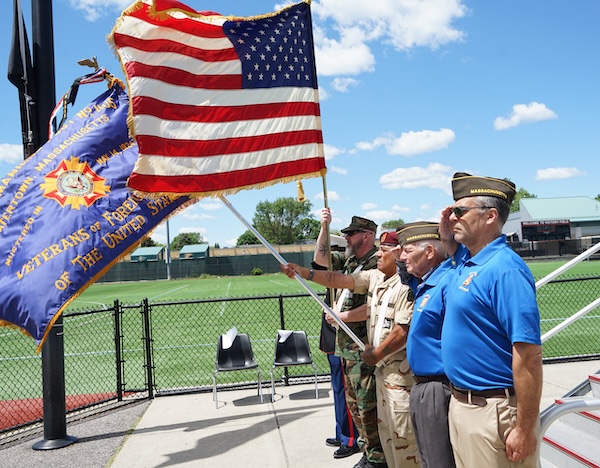
After a parade featuring youth sports teams, bands, the Watertown Police and Fire Department, and many more, a newish Watertown resident who devoted his career to military service and military intelligence spoke about the importance of Memorial Day and what all citizens can do to preserve the memories of those who died serving their country.
This year, the keynote speaker at Watertown’s Memorial Day Ceremony, held Monday at Victory Field, was Ret. Col. J.D. Williams, who served in the Marine Corps from 1978-2004 as an intelligence officer. He participated in operations Desert Storm, Fiery Vigil in the Philippines, and El Dorado Canyon against Libya. He was also deployed to Bosnia, Kosovo, Afghanistan, and Iraq. After retiring from the Marines he worked in the Treasury Department and the Defense Intelligence Agency and the United States Intelligence Council, and was a senior defense researcher at the RAND Corporation. He moved to Watertown with his family to Watertown in 2023.
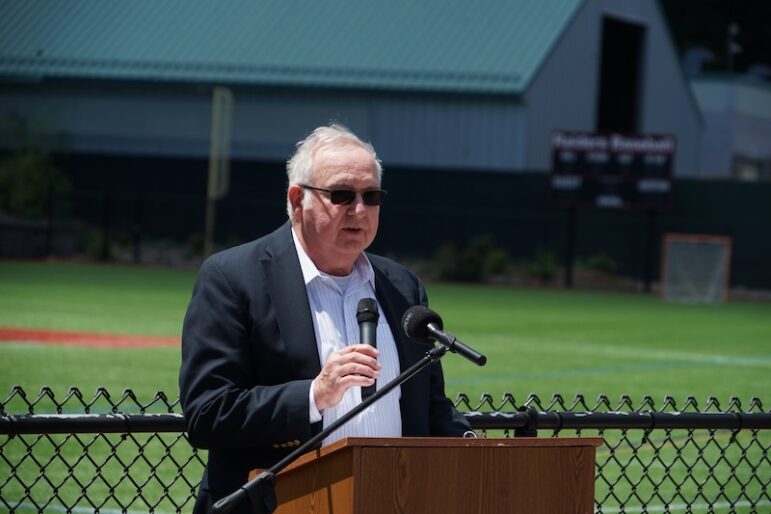
Williams spoke about what Memorial Day means to him.
“Memorial Day is more than just a celebration at the beginning of summer, it’s a day to remember those who’ve given the ultimate sacrifice for their country,” he said. “During and after my military service, I had the privilege of visiting many battlefields all over the world as a hobby.”
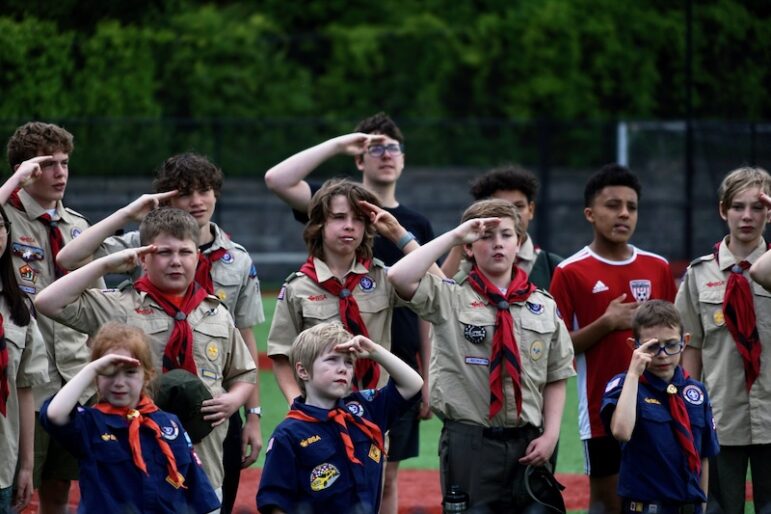
Over the years, Williams visited Revolutionary War battlefields in the area, such as Lexington, Concord and Bunker Hill. Williams also visited the sites of Civil War battles in Virginia, Maryland, Pennsylvania and Tennessee, and those around the world such as Normandy, Belleau Wood, Guadalcanal, the Ardennes, Iwo Jima and Inchon.
“When viewing cemeteries at Gettysburg, Belleau Wood or Omaha Beach, one can’t help but be filled with awe and sorrow, awe for the sacrifice of so many in the service of our country, and sorrow for the lives not just lost but unfulfilled,” he said. “It is the images not just of the rows of gravestones, but the embodiment of the individuals and their acts that these headstones represent that I think of when I come to Memorial Day.”
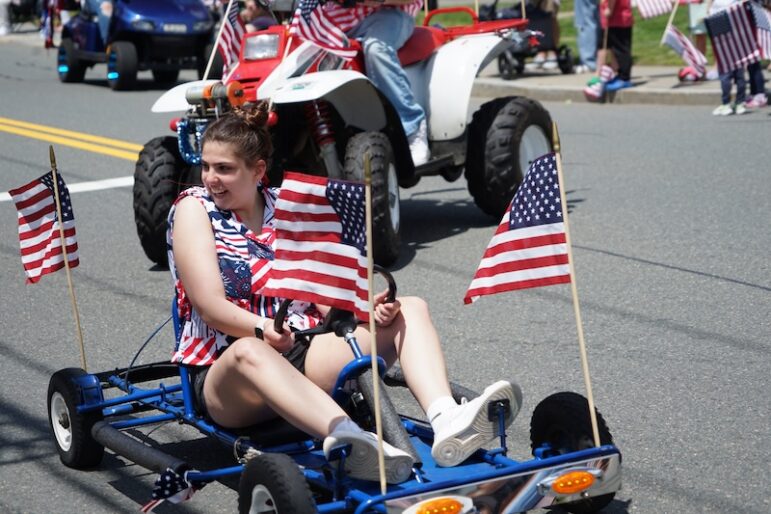
Recently he toured Vietnam with a group that visited areas of major conflict, such as the Mekong, Saigon, Da Nang, and the Arizona Territory, as well as monuments and cemeteries dedicated to the Viet Cong and the North Vietnamese Army.
“In many of these cemeteries, we saw rows and rows of stone tablets engraved with the names of ordinary Vietnamese much like the tablets at our own Vietnam Veterans Memorial in Washington, D.C., ordinary Vietnamese people called to do extraordinary things in service of their country,” Williams said. “It was a stark reminder that there really aren’t any winners.”
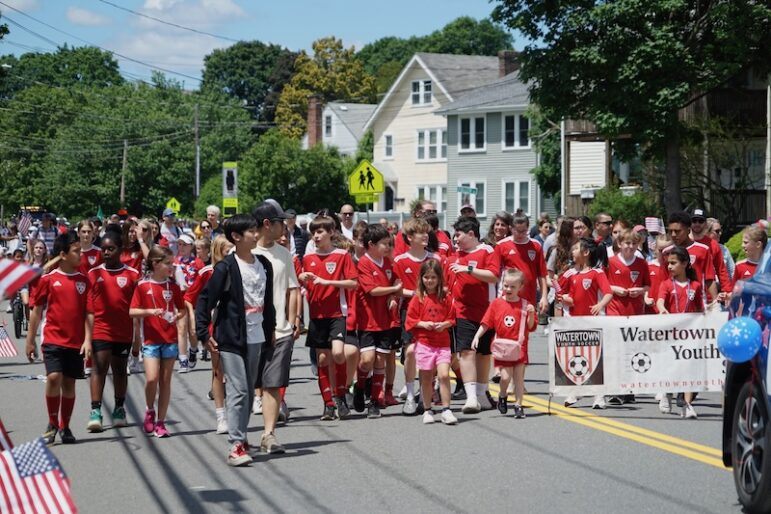
More than 3 million Americans served in Vietnam during the conflict, and 58,000 men and women died. Williams said that he thinks that holding parades and placing flags on graves once a year does not seem sufficient to acknowledge and remember them.
“These men and women died in the service of our country, service and support of our freedoms and Constitution. I think we disregard their service when we don’t exercise our responsibilities as citizens and take an active role in our democracy,” he said. “And a most critical responsibility of our citizenship is to actively participate in decisions about when, where and why we choose to go to war.”
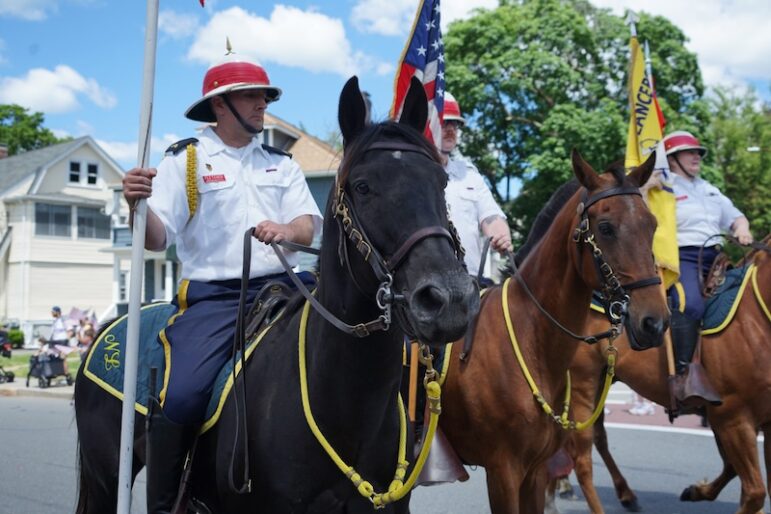
One of the real tragedies of the Vietnam Conflict, Williams said, was that the citizenry was excluded from the debate until thousands of soldiers had already been deployed.
“Our leaders concealed the true state of the conflict, resulting in divisive protests, a shattered military and an enduring mistrust of government …” he said. “In my experience, the same can be said of recent conflicts. Our current all volunteer force has created a marvelous military capability for the United States, but has also resulted in even greater disconnect between the citizenry and its military than what existed in the 1960s fewer and fewer citizens serve or know someone who serves.”
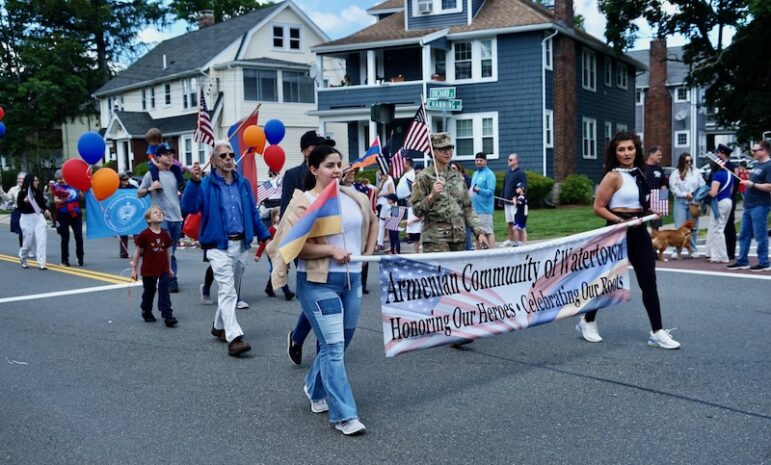
The result, Williams said, was that most Americans are not aware of or participate in “the decisions of war and peace.”
“Yet the costs remain extraordinarily high in dollars spent in destruction and in the lives of combatants and non-combatants alike. Don’t get me wrong. I’m not a pacifist. There are clearly causes that are worth fighting for, but in my view, too often our precious service men and women are committed to combat without adequate debate by our elected representatives, the press and the citizenry writ large, and that isn’t right. War is too important and the results are too tragic to be left with politicians,” Williams said. “So please get informed and get engaged. Let your political leaders know that you are watching, and they need to be accountable to you and all these ordinary men and women who have done such extraordinary things, so that when we gather for future Memorial Days, we can say to the fallen that we have done our part. We have exercised the freedoms for which they have given so much.”
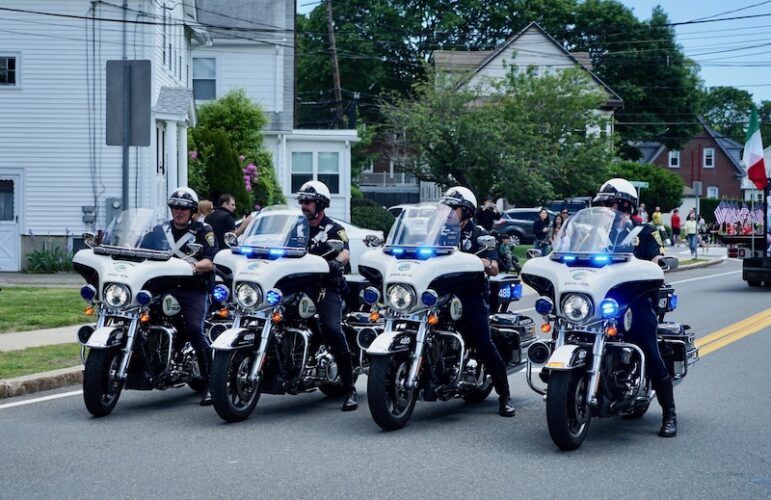
After Williams spoke, Watertown Veterans Service Officer Patrick George reflected on Memorial Day. He noted a conversation he had with a high school student this year when the flags were being replaced at the graves of veterans at Watertown’s cemeteries. The student asked why the flags were being replaced when they were in pretty good condition.
“The technical answer was, of course, we do this every single year. The more in depth answer is, as we replace those flags every single year, we might give the voice to a name that may not have been said until last Memorial Day, we give a voice to those names,” George said. “It should be our mission as residents and community in this country that the names of our fallen service members are never lost to memory. They’re never just names on a headstone or on a street sign. Memorial Day is about the veterans who are no longer with us.”
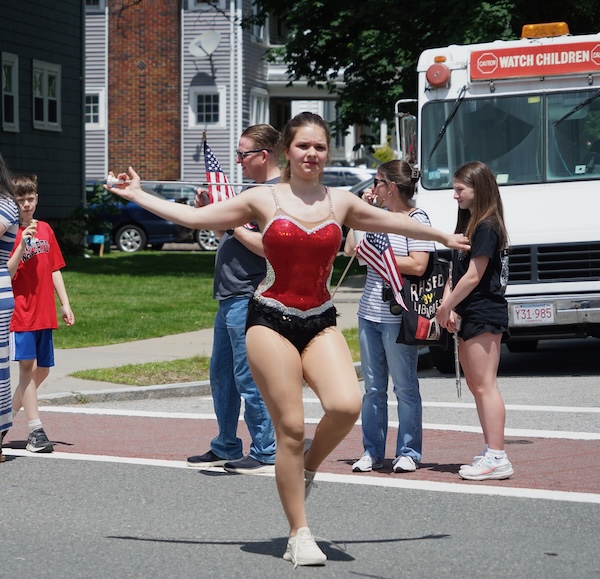
Before the ceremony ended, City Council President Mark Sideris acknowledged George’s work in Watertown.
“This is Patrick’s last Memorial Day with us. I want to thank Patrick for all he’s done for the veterans of this community and served our community in many, many ways,” Sideris said.
“Patrick is moving on to help the veterans at the state level, which is very important, but we’re going to miss you here at Watertown, and I would be remiss if I didn’t recognize Watertown’s efforts on behalf of the veterans in the community. Thank you, Patrick.”
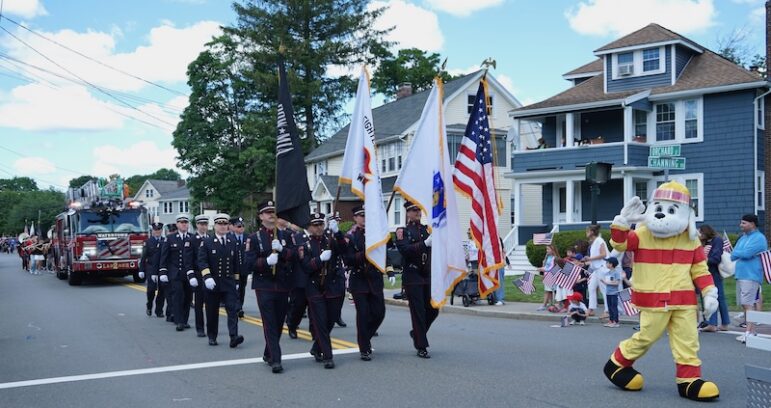
Patrick worked in Watertown for six years. It was the first community where he served as the Veterans Service Officer. He will move on to become the Director of Benefits with the Executive Office of Veteran Services in Boston.
One thing he learned working in Watertown, Patrick said, was to be flexible. One example, he said, was the parade, which changed multiple times during his career. One was held on Mt. Auburn Street, the Pandemic cancelled one, and the last few years have used an alternative route, ending at Victory Field, due to roadwork on Mt. Auburn Street.
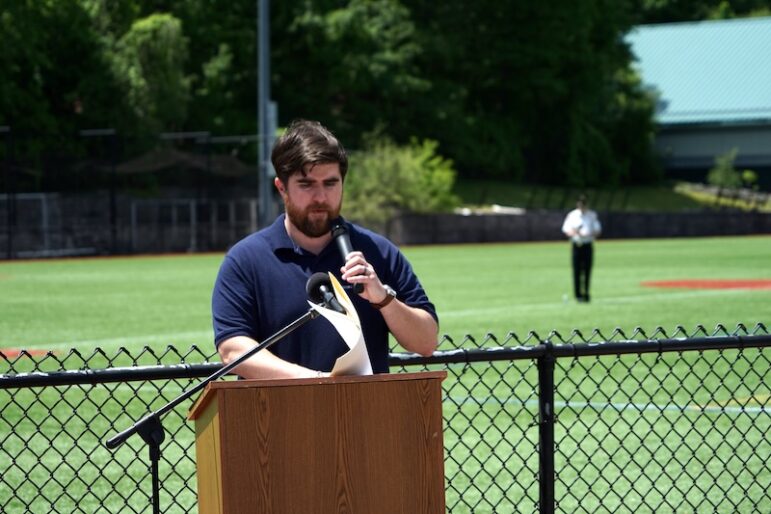
In a farewell email, George expressed his appreciation, and information for veterans seeking assistance.
“It’s been an honor to be the VSO for this community for the last 6 years; and want to highlight my appreciation for the participants, as no parade has ever been the same since I’ve been here. Between pandemics and roadwork, many of you have ensured you were there to pay respects to the servicemembers of Watertown, no matter the route,” he wrote. “As I transition out of Watertown, I want to ensure you’re able to connect with the next VSO when they’re hired. If you need to contact this office, please email: Veterans@watertown-ma.gov going forward.”
See more photos from the parade below:
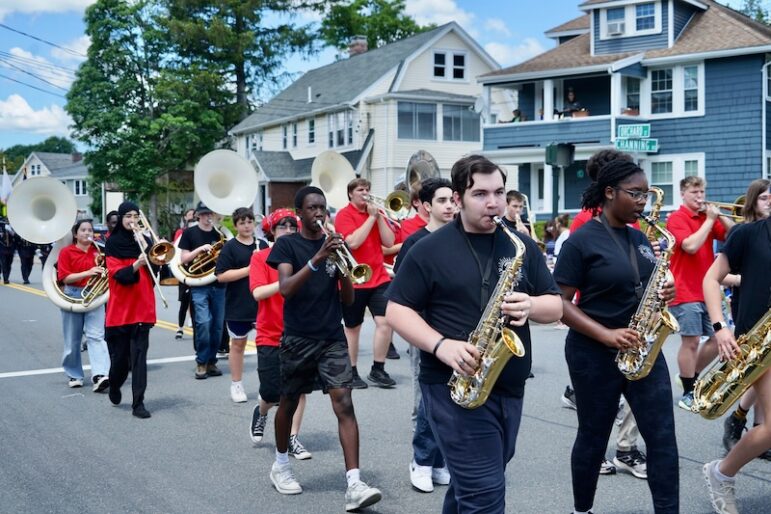
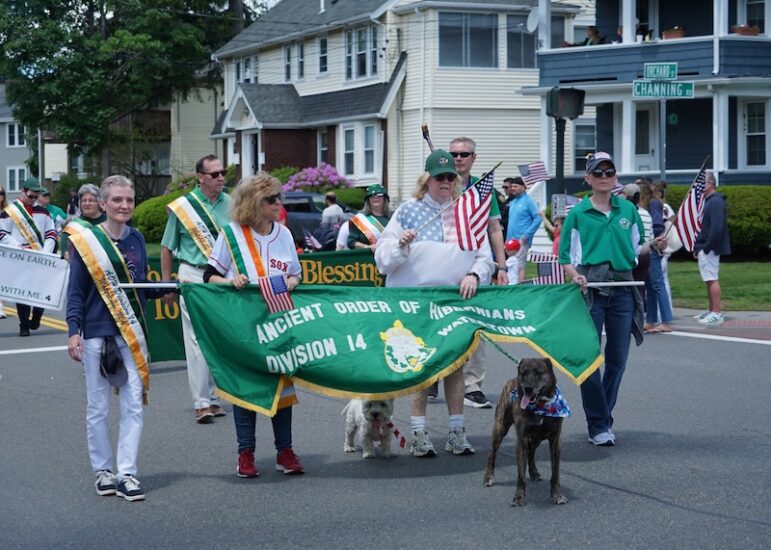
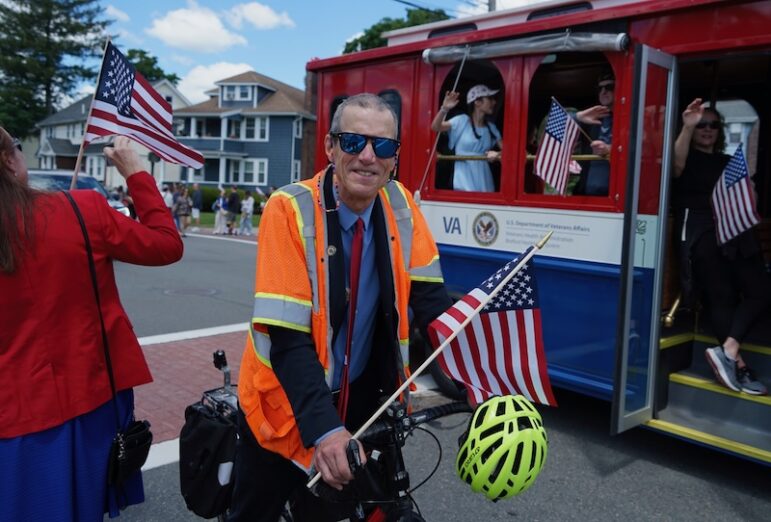
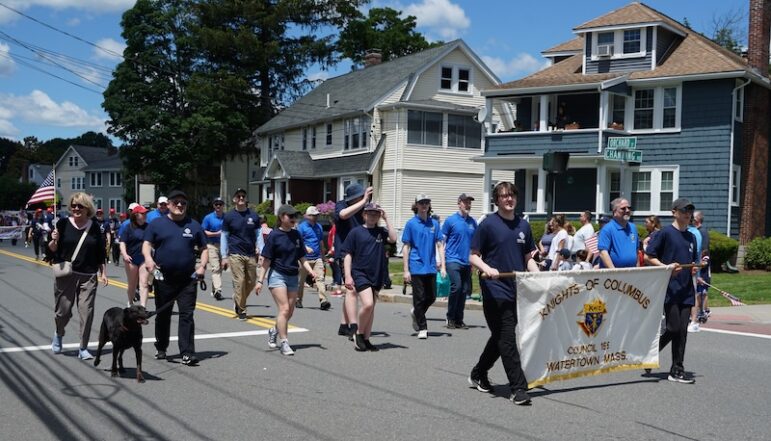
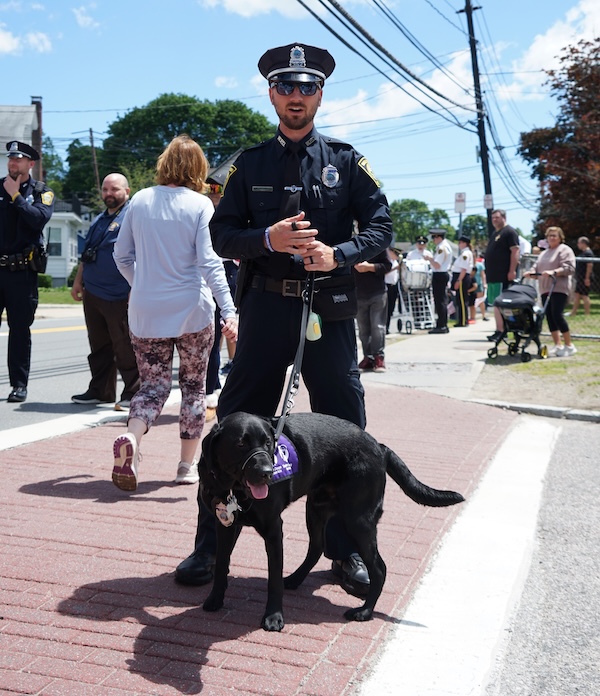
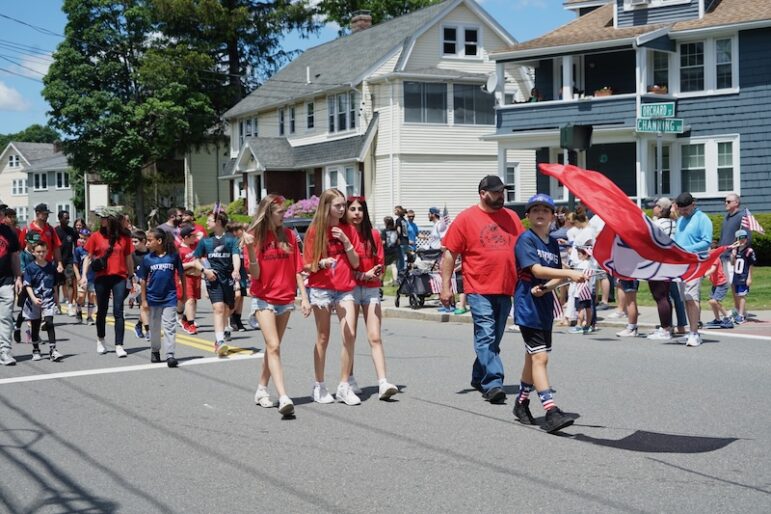
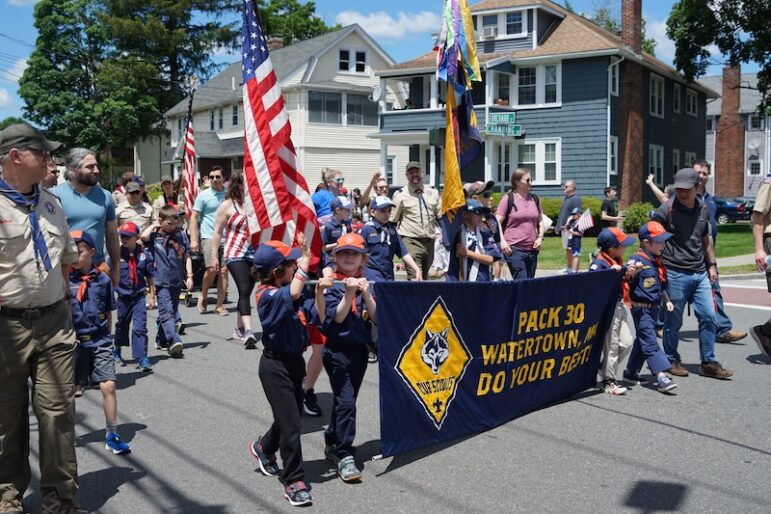
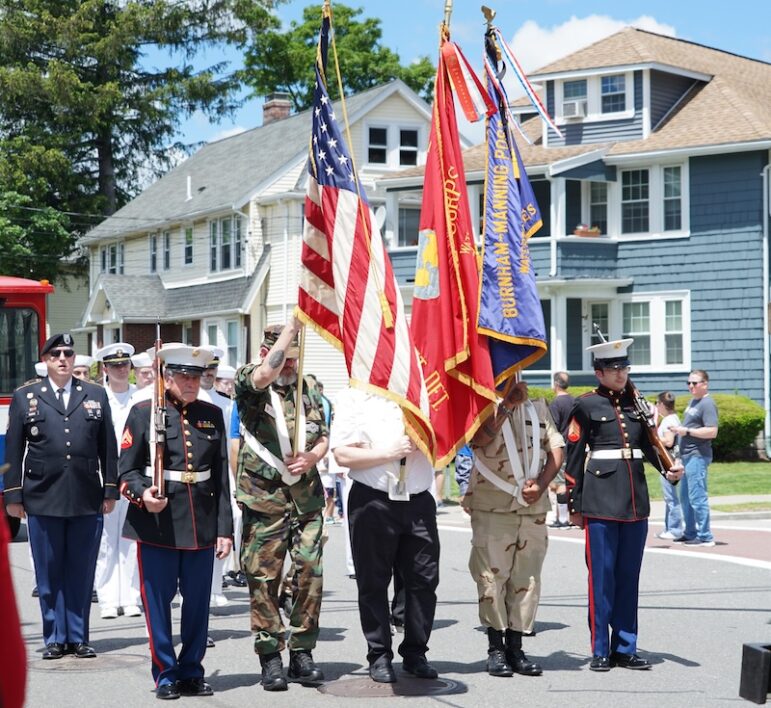
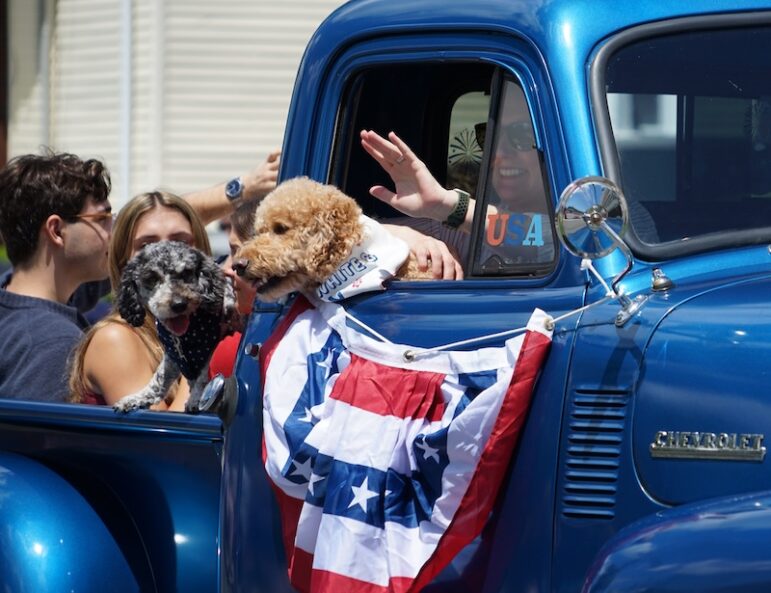
wonderful pictures great coverage of speech.